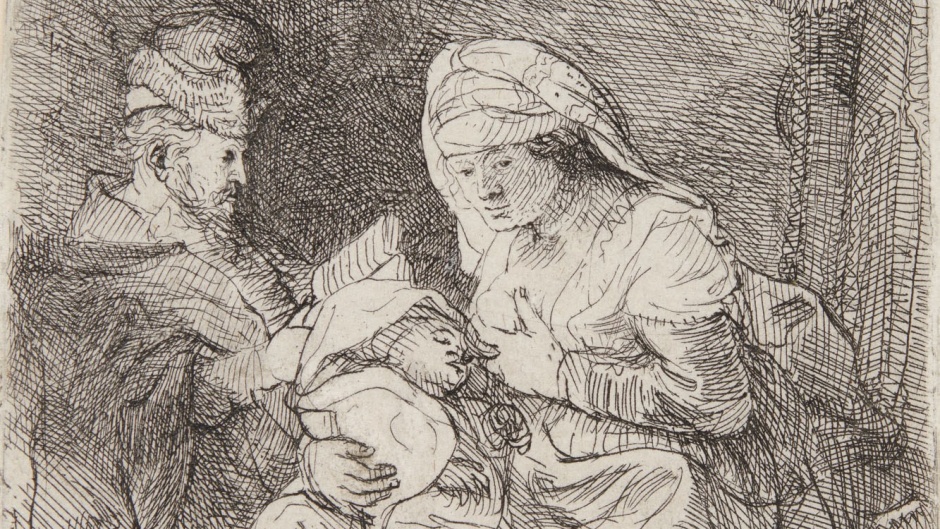A mystery to ponder
In a Europe that has widely turned its back on the story that, far more than any other, has shaped its culture and civilisation, Christmas remains a paradox.
27 DECEMBER 2023 · 10:20 CET

Christmas must be a very frustrating annual experience for those who would like to see all memory of the Christ story eradicated.
For in a Europe that has widely turned its back on the story that, far more than any other, has shaped its culture and civilisation, Christmas remains a paradox.
It refuses to fade away despite the widespread ignorance of the reason for the season, and all efforts to distort it, ignore it, escape it or deny it.
Even those who wish each other ‘Happy Holidays’, refusing to use the word ‘Christmas’, cannot escape that word’s root origin from ‘holy day’, or the Old English hāligdæg.
From Portugal to Russia, and from Iceland to Greece, Europeans this month are widely commemorating the birth of a Jewish baby on the fringes of the Roman empire two millennia ago.
Even those who wish each other ‘Happy Holidays’, refusing to use the word ‘Christmas’, cannot escape that word’s root origin from ‘holy day’, or the Old English hāligdæg.
Nativity scenes, Christmas trees and Christmas services are stirring the Christmas spirit of Europeans everywhere, believers and unbelievers alike. In German-speaking cities, the festive atmosphere of the Weihnachtsmarkt – or Christkindlmarkt – draws crowds of locals and tourists for the whole season of Advent.All over a very secular Netherlands, performances of Händel’s Messiah remain a high point of the Christmas season for many thousands, with its clear proclamation of Jesus as the Messiah.
Even in Russia, where Christmas is celebrated on January 7 according to the Julian calendar, the ruthless autocrat Vladimir Putin traditionally attends an Orthodox Christmas liturgy.
Remarkably, the memory of the Bethlehem babe born of necessity in a stable persistently lives on in the minds of children and adults across the continent, in our art and music, in rituals and liturgies, and as official state holidays.
Parasites?
All this points to the parasitical nature of secular society. It cannot loosen itself from its Christian origins.
Granted, pagan and Christian elements have always mixed since the Jesus story was introduced to the peoples of Europe, many of whom already held some kind of mid-winter festivities.
The memory of the Bethlehem babe born of necessity in a stable persistently lives on in the minds of children and adults across the continent, in our art and music, in rituals and liturgies, and as official state holidays
Early missionaries tried to ‘baptise’ old customs to give new Christian meaning. Christmas trees, mistletoe, Christmas cakes, holly decorations, Santa’s sleigh and reindeer, and the date of December 25 derive from old pagan customs and myths.So is it we Christians who are parasites?
Well, no. None of these Yuletide elements belong to the radically transformational Christmas story. Rooted in the Old Testament, the Jesus story revealed a God who came among humans as a child, humble and vulnerable.
This was no warrior-god or hero-god such as the Celtic, Germanic or Viking tribes would have expected.
This God-child revealed the dignity of humanity and modelled a lifestyle of love, truth and justice, of forgiveness and reconciliation, of turning the other cheek and walking the extra mile, of feeding the hungry, clothing the naked and sheltering the homeless.
That revelation shaped societies and communities profoundly across Europe.
Vacuum
Frustrating too for secularists must be the recent return of serious debate in intellectual circles about how the Christian narrative laid foundations for western civilisation.
Authors and thinkers like Tom Holland (Why I was wrong about Christianity) and Ayaan Hirshi Ali (Why I am now a Christian) argue that atheism and secularisation fail to answer the question: what is the meaning and purpose of life?
A belief system based on not believing in something has simply created a nihilistic vacuum, says Hirshi Ali.
They are discovering what the German jurist Ernst-Wolfgang Böckenförde articulated sixty years ago that liberal secularism cannot itself produce the values, the unifying ethos, by which it exists.
This God-child revealed the dignity of humanity and modelled a lifestyle of love, truth and justice, forgiveness and reconciliation
The cornerstone of those foundations was laid by the birth of Jesus.Rembrandt’s etching of the Holy Family (1632) (above) shows Mary gazing abstractly as she ponders the meaning of the events that have overtaken her: including the words of the angelic visitors both to her and to Joseph, and the prophecies spoken out by Anna and Simeon of ‘God’s Promised One’, ‘the Messiah’, ‘the Saviour’ whom many will accept and others not. Joseph is reading, presumably searching the Scriptures to understand the drama into which he too has been drawn.
Without any of the traditional features of religious art such as haloes, pious faces and folded hands, Rembrandt portrays the Incarnation as happening within the most ordinary daily routine of a mother breast-feeding her child.
She ponders…. but how could she have foreseen his life, his ministry, his suffering, his resurrection, his ascension? How could she ever have imagined that Europeans, indeed people of all peoples the world over, would be commemorating the birth of her child two thousand years later?
We do well to join Mary this Christmas in pondering the mystery of God becoming one of us.
Jeff Fountain, Director of the Schuman Centre for European Studies. This article was first published on the author's blog, Weekly Word.
Published in: Evangelical Focus - Window on Europe - A mystery to ponder
